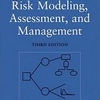 Truckers caught up in Europe’s migrant crisis say business is increasingly disrupted by queues and stowaways, but they are far more worried governments will step up border controls. In a worst case scenario this could mean serious supply chain disruptions or supply chain delays if EU governments decide to make border crossings more difficult than today.
Truckers caught up in Europe’s migrant crisis say business is increasingly disrupted by queues and stowaways, but they are far more worried governments will step up border controls. In a worst case scenario this could mean serious supply chain disruptions or supply chain delays if EU governments decide to make border crossings more difficult than today.
Schengen about to be scrapped?
Europe is currently facing a major migrant crisis, so severe that there is already a Wikipedia entry for European migrant crisis. While this is first and foremost a humanitarian issue, there could be potential supply chain consequences, as an article on euractiv.com reports, stating that Haulers fear migrant crisis:
Truckers caught up in Europe’s migrant crisis say business is increasingly disrupted by queues and stowaways, but they are far more worried governments will step up border controls.
If the border-free zone within Europe were to disintegrate or be scrapped, it would call into question not only the road haulage industry’s own, time-sensitive business model but the supply chains of industries across the continent, they say.
The article on euractiv.com paints a rather frightening picture of what could possibly happen if the worst hit EU countries decide to enforce stricter controls, let alone close their borders completely. That would bring us back to the days we still had passport checks, document controls, crosschecks, and all of this increasing the waiting time for border crossings to hours at best and days at worst.
Are we heading in the right or wrong direction?
This brings to mind what I highlighted in a previous post on cross-border supply chains:
The vulnerabilities of international supply chains will increase in the future, driven by various external hazards and risks, lean operational models as well as changes imposed by regulatory countermeasures. Companies are particularly concerned about future disruptions in material supply and transportation, which will have negative impact on just-in-time operations.
That post was written in 2011, and now, 4 years on, “the vulnerabilities of international supply chains” has definitely increased, albeit migrants were probably not the shortlist of possible future vulnerabilities at that time.
Links:
- euractiv.com: Haulers feel migrants can slow down intra-EU trade
Related posts
- husdal.com: Book review – Customs risk
- husdal.com: Cross-border supply chains












